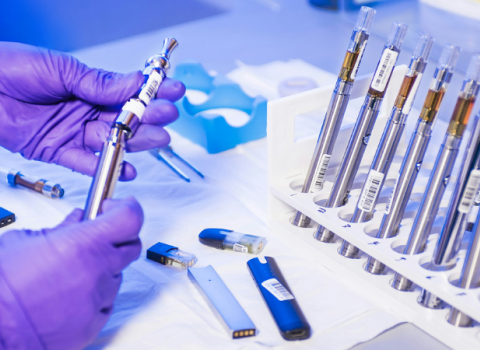Imperial College London's
technology commercialisation company is betting on a spin-out company,
deltaDOT, to speed detection and decrease costs of finding new proteins
for drug discovery.
The £402,000 investment, by Imperial Innovations Ltd., is part of a £2.3 million private equity funding round with other existing investors Fleming Family & Partners and new investor NPI Ventures Ltd. Additional financing is being planned to increase deltaDOT's production capacity, develop international sales and marketing and develop more products.
The technology deltaDOT is developing is part of a hot area of drug discovery aimed at speeding up discovery of potential new pharmaceuticals based on proteins and nucleic acids. This is a major cost in the drug discovery and development process. New systems from deltaDOT, including those using a technology called high-performance capillary electrophoresis (HPCE), potentially could displace such widely used, but old, laboratory techniques as gel electrophoresis. One- and two-dimensional gels are time-consuming and can be limited in the number of proteins they can detect or examine from experimental biochemical samples.
The deltaDOT technology uses tiny vessels or capillaries to sort out different kinds of biochemical elements in test samples by size. The company's technology also uses a novel biomolecule detection technique called label-free intrinsic imaging, which is derived from innovations in high energy physics that have been applied to analyzing biochemicals. The technique uses the optical properties of molecules – that is, the fact that proteins and nucleic acids absorb light in characteristic patterns - to detect and quantify them. The technology also uses innovative pattern-recognition tools to detect very small signals from proteins or nucleic acids. It thus is very sensitive, the company claims, in detecting proteins present in biochemical samples. Proteins present in small amounts, for example, could lead to important new drugs, but existing lab techniques may not be able to detect them.
The one-dimensional gels detect proteins by their size alone, and two-dimensional gels detect proteins by both their size and electrical charge. The latter can look at thousands of proteins in one experiment, but there is a push in the drug discovery world to look at more and more proteins at a time, and to do it faster and with more sensitive techniques.
The proceeds of the recent funding will be used to manufacture and commercialize the company’s Peregrine Protein/Nucleic analysis system and its Merlin DNA sequencer, said Anthony Baxter, CEO of deltaDOT. Additional funding the company will seek will be used to develop new products such as a protein folding/unfolding chip and a virtual two-dimensional chip to replace 2-D gels. Such chips can contain hundreds or even thousands of different biochemical samples that can be examined by an analytical instrument or system very quickly at the same time.
Further information: www.deltadot.com





 A unique international forum for public research organisations and companies to connect their external engagement with strategic interests around their R&D system.
A unique international forum for public research organisations and companies to connect their external engagement with strategic interests around their R&D system.